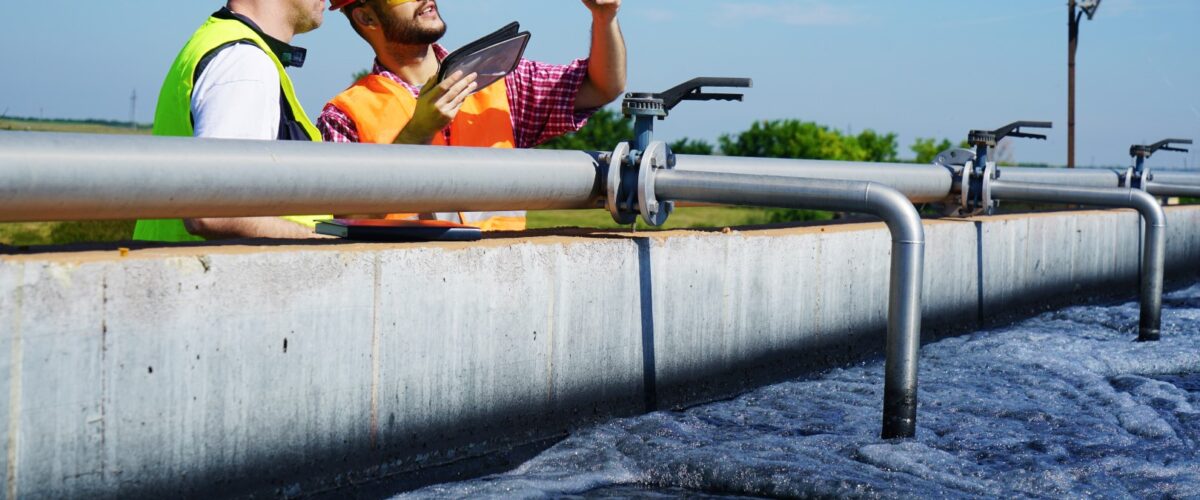- State Water Resources Control Board (SWRCB).
- Regional Water Quality Control Boards (RWQCBs).
Waste water discharge permits ensure facilities treat and safely discharge industrial wastewater. Local sanitation districts mandate permits to protect their treatment systems and the waterways to which they discharge. CDMS is an invaluable permitting partner, providing clients with sampling, monitoring, reporting, chemical inventories, and hands-on application preparation. Our regulatory insights optimize the permitting process end-to-end. CDMS also offers audits, and renewal support for ongoing compliance. Any facility that discharges industrial wastewater to the sewer is subject to having an industrial wastewater discharge permit. CDMS will evaluate the industrial waste water to determine if an Industrial Wastewater Permit Application is required by the local POTW (Publicly Owned Treatment Works). This will include obtaining industrial waste water samples from the facility, having those samples analyzed to determine their concentration of pollutants. Clean Water Act – Federal law that regulates discharges into waters of the United States. Provides basis for NPDES permitting program. CDMS will evaluate the Client’s Industrial Waste Water to determine if an Industrial Waste Water Permit Application is required by the local POTW. This will include: CDMS will prepare and submit an Industrial Waste Water Permit Application to comply with the requirements of 40 CFR 403.12. The permit will include the following: What is an Industrial Wastewater Discharge Permit? Who needs an Industrial Waste Water Discharge Permit? What does the permit entitle the discharger to do? When is a wastewater discharge permit required? How do I apply for a wastewater discharge permit? What are the costs for a wastewater discharge permit? What limits are placed on permitted dischargers? Are there ongoing reporting requirements? What kind of sampling is required? How long does the permitting process take? How long are wastewater permits valid? Can I modify my permitted discharge or activities? What happens if my discharge violates permit conditions? What records must be kept for wastewater permits? Are stormwater discharges covered under wastewater permits? Can I discharge anything into the sanitary sewer? Does a permit allow discharge to groundwater or land? My facility applies for Zero Discharge Permit, what is the process for getting it and who can assist me? Can I transfer or sell my discharge permit? Can my local authority deny my permit application? How do I renew my expired wastewater permit? Can the public review and comment on permits? Waste Water Discharge Permit
Regulatory bodies
Who needs it
Regulation reference
What our service provides:

Request a Free EHS Compliance Assessment
A permit issued by wastewater authorities allowing specific industrial facilities to discharge waste water to the sewer system, containing limits on pollutants and operational conditions.
Any facility that wishes to discharge waste water that results from an industrial process into the sewer system.
The sewer authority may choose to exempt certain dischargers from the requirement to obtain a permit if the quantity and quality of the wastewater will not affect the sewer system.
The permit conditions set certain limits or levels of allowable contaminants. The permittee is then required to regularly sample to ensure they are under these limits.
The permit may require the waste water to be pretreated prior to discharge or may prohibit the discharge of certain materials or contaminants altogether
If a facility discharges any amount of industrial process wastewater to the sewer.
Submit a permit application to your local POTW documenting your operations, wastewater flow rates and characteristics, and proposed treatment.
Application fees vary by location but typically range from $500 to $5,000. Annual permit fees thereafter range from $1,500 to $50,000 depending on facility size.
Permits contain limits on pollutants of concern like heavy metals, pH, BOD, and TSS. Limits are based on water quality standards and treatment plant capabilities.
Yes, monthly, bimonthly, quarterly or semiannual reporting of discharge volumes, concentrations, visual observations, and compliance status are usually required.
Permits specify sampling locations, parameters, frequencies, and approved analytical methods based on wastewater contents.
Typically 6 to 12 months is required for application review, public notice, environmental review, and permit development.
Discharge permits are usually valid for 5 years initially. Renewal applications must be submitted at least 180 days before expiration.
Yes, permit modifications can be approved through submitting updated applications.
Dischargers exceeding limits may be subject to notices of violation, fines, increased monitoring, or permit termination.
Monitoring data, calibration logs, maintenance records, sampling QA/QC, training logs, and manifests typically must be kept for 5 years.
No, separate stormwater permits are required for discharges to storm drains or waterways.
Only discharges approved by your wastewater authority are allowed. Some substances are prohibited.
No, additional permitting is required for discharges to groundwater injection wells or land application.
The process varies by location, but generally involves submitting an application to the local permitting authority demonstrating that your facility does not discharge any wastewater. Supporting documentation and possibly a site inspection may be required. We can assist with the permitting process. Contact Us to get support or request a Zero Discharge Permit. Our skilled team of EH&S specialists is ready to assist you.
Yes, permits can be transferred to a new owner through an ownership change process.
Yes, permits may be denied if discharges could cause treatment issues or violate water standards.
Submit a renewal application at least 180 days before expiration and comply with any new requirements.
Yes, new and modified permits typically have a 30 day public notice period to receive comments.



